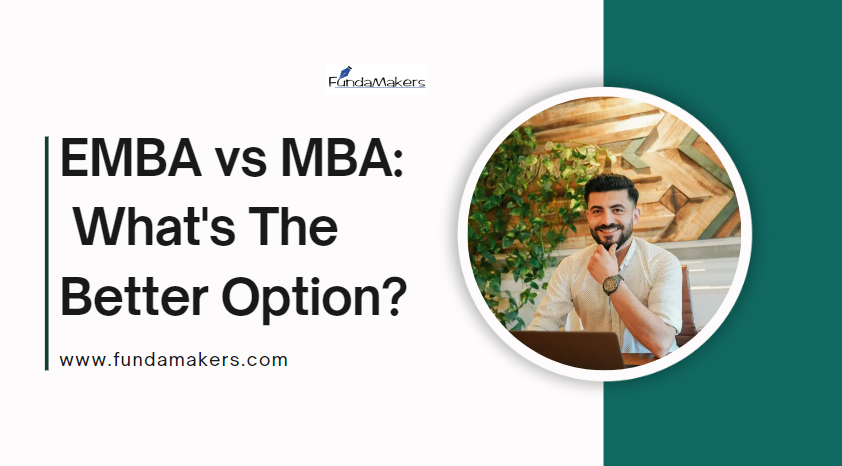In today’s competitive business landscape, the choice between pursuing a traditional Master of Business Administration (MBA) and an Executive Master of Business Administration (EMBA) can significantly impact one’s career trajectory. Both programs are designed to enhance leadership skills and strategic thinking, but they cater to different professional needs and life stages. An MBA typically suits early-career professionals aiming to gain foundational business knowledge and pivot into new roles, while an EMBA targets seasoned executives looking to elevate their leadership skills and broaden their strategic vision without interrupting their careers. Understanding the distinctions between these two advanced degrees is crucial for making an informed decision that aligns with your career goals and aspirations. Business schools all around the world provide hundreds of recognised EMBA and MBA programs; however, prospective students should carefully compare the programs’ features before selecting one.
The Executive Master of Business Administration, or EMBA, is frequently mistakenly believed to be a better program than other MBA programs. When, in fact, once graduation, the two programs are equally respected and valuable. Their delivery format and goal distinguish them, resulting in two completely different experiences.
MBA vs EMBA- Program Period And Curriculum
The main distinction between an executive MBA and a full-time MBA is that the latter is intended for working professionals and is offered part-time. However, the duration of both programs varies depending on the school. Most EMBA students continue to work full-time in their present roles while completing some coursework online or through distance learning. On the other hand, in-person EMBA classes are scheduled for evenings, weekends, and/or intense weeks, depending on the school and format chosen by the candidates. Some programs may even be held in several places throughout the globe.
The fundamental courses in both the MBA and EMBA curricula are covered, although the MBA program offers more electives than the EMBA program, and most subjects must be taken in tandem. Because of this, MBA students typically have more flexibility in choosing their coursework and a greater range of options at their disposal, such as the ability to pursue a track or concentration. For students who choose to specialise at this level in fields like family business, healthcare, and sustainability, there are also tailored EMBAs available.
In the landscape of graduate business education, the difference in pace between Executive MBA (EMBA) students and their full-time MBA counterparts is akin to contrasting approaches to endurance training. EMBA students tackle their coursework in short, high-intensity bursts, much like athletes sprinting through a series of short races, allowing them to balance their studies with demanding careers. This method enables them to efficiently integrate academic commitments with ongoing professional responsibilities. On the other hand, full-time MBA students embark on a prolonged and immersive journey, akin to running a marathon, where the focus is on maintaining a steady and relentless pace. This approach demands full dedication, with the program designed to consume their attention and energy, leaving little room for external job commitments. The stark difference in these educational experiences highlights the distinct strategies required for managing professional and academic responsibilities in each program.
In order to minimise disruption from their usual work schedules, EMBA students typically do classwork at shorter, more concentrated intervals than their MBA colleagues. In contrast, the schedules of full-time MBA students are so demanding that working outside of the school is discouraged. The MBA can be compared to a marathon, but an EMBA can be thought of as a sequence of sprints.
MBA vs EMBA- Admission Criteria
When comparing the admission requirements for Executive MBA (EMBA) and full-time MBA programs, notable differences reflect the distinct profiles and goals of their applicants. EMBA programs are designed for mid- to senior-level professionals with substantial work experience, often requiring candidates to have at least 10-15 years of managerial experience. This experience is crucial as the curriculum builds on existing professional knowledge and is tailored to enhance leadership skills. Typically, EMBA applicants need to submit a detailed resume, letters of recommendation from colleagues or supervisors, and evidence of career advancement. In contrast, full-time MBA programs generally cater to a broader range of candidates, including those with fewer years of work experience—often 2-5 years. Admission requirements usually include a strong undergraduate academic record, standardized test scores (like the GMAT or GRE), letters of recommendation, and a personal statement or essay. Full-time MBA applicants are evaluated on their potential for future leadership and academic ability, with less emphasis on extensive professional experience compared to their EMBA counterparts.
GMAT results are given greater weight throughout the full-time MBA application process than application essays are in order to assist separate individuals. Although this can vary depending on where in the world you intend to study, full-time MBA programs typically seek for between three and five years of prior job experience when it comes to management experience.
Top-ranked universities’ MBA and EMBA programs demand one, if not more, recommendation letters for admission. Evidence that the applicant’s present employer supports their decision to pursue an executive MBA is particularly crucial because the candidate’s success in the program and at work will be impacted by their work-study balance.
MBA vs EMBA- Fees & Package
In India, the financial landscape for Executive MBA (EMBA) and full-time MBA programs presents distinct differences in terms of fees and return on investment (ROI), reflecting their unique structures and target demographics. EMBA programs in India, offered by prestigious institutions such as the Indian School of Business (ISB) and the Indian Institute of Management (IIM) Bangalore, generally have higher tuition fees ranging from ₹20 lakhs to ₹40 lakhs. These programs cater to experienced professionals looking to enhance their leadership skills while continuing to work, thus often offering substantial ROI in terms of career progression and salary increments without the need to pause their professional careers. Graduates of EMBA programs frequently experience accelerated career growth and opportunities for higher executive roles, with the investment in the program reflecting positively on their enhanced earning potential and career advancement.
The bulk or all of the tuition for many EMBA candidates has historically been paid for by their company because this type of sponsorship was thought to be a worthwhile investment for developing managers who could then use newly gained abilities in their profession. While this kind of sponsorship is still available, many schools are now offering EMBA scholarships as a result of students choosing to self-fund their education in recent years. Students receiving firm funding may be expected to dedicate themselves to the organisation for a few years after earning their degree.
Conversely, full-time MBA programs in India, provided by leading institutions like IIM Ahmedabad, IIM Calcutta, and XLRI Jamshedpur, have tuition fees typically ranging from ₹15 lakhs to ₹30 lakhs. These programs are designed for individuals who are willing to leave their jobs to fully immerse themselves in their studies. Although the initial cost is significant and often involves a temporary loss of income, the ROI can be substantial as graduates frequently secure higher-paying roles and can pivot to new career paths post-graduation. The full-time MBA experience in India often results in a significant boost in salary and career opportunities, making it a viable investment for those seeking a dramatic career shift or enhancement. Both programs offer valuable returns, but the choice between an EMBA and a full-time MBA depends on one’s career stage, financial situation, and long-term professional goals.
Comparing Lifestyle of both the Programs
When it comes to networking and lifestyle, the differences between full-time MBA and Executive MBA (EMBA) programs are pronounced, reflecting the distinct goals and schedules of their participants. Full-time MBA programs, typically attended by individuals in the early to mid-stages of their careers, offer an immersive networking environment. Students are often engaged in on-campus activities, industry seminars, and social events, which foster robust connections with peers, alumni, and business leaders. The concentrated, full-time nature of these programs facilitates deep engagement with the academic community and helps build a broad, diverse professional network. This extensive network can be instrumental in launching new careers, transitioning industries, or pursuing entrepreneurial ventures.
In contrast, EMBA programs are designed for seasoned professionals who are balancing their studies with ongoing careers. The networking opportunities in EMBA programs are typically more focused and tailored to high-level executives. Students benefit from a network of peers who are already established in their fields, providing a rich resource for strategic partnerships, industry insights, and executive-level opportunities. The networking events and interactions in EMBA programs are often structured around real-world challenges and executive roundtables, which can lead to valuable business connections and collaborative opportunities at the senior management level.
Regarding lifestyle, full-time MBA students experience a transformative period of intense academic focus and personal development. They often relocate to be closer to their institutions, fully immersing themselves in the campus life and its associated demands. This phase is marked by a temporary break from professional work, allowing students to dedicate themselves entirely to their studies and the MBA experience.
On the other hand, EMBA students continue to work while pursuing their degree, necessitating a lifestyle that balances demanding job responsibilities with academic commitments. This often means attending classes on weekends or in intensive blocks and managing coursework alongside professional duties. While this dual engagement can be challenging, it also allows EMBA students to apply what they learn in real-time to their work, enhancing the practical value of their education. The lifestyle for EMBA students is thus characterized by a high degree of juggling, requiring strong time management skills but offering the advantage of integrating academic learning directly with ongoing professional experience.
Read More- Top B schools in India without any Sectional cut-off



